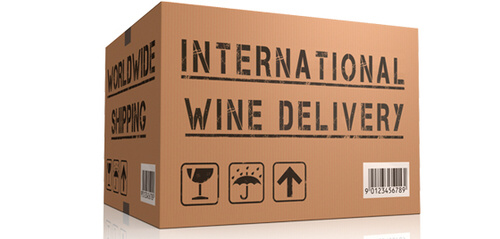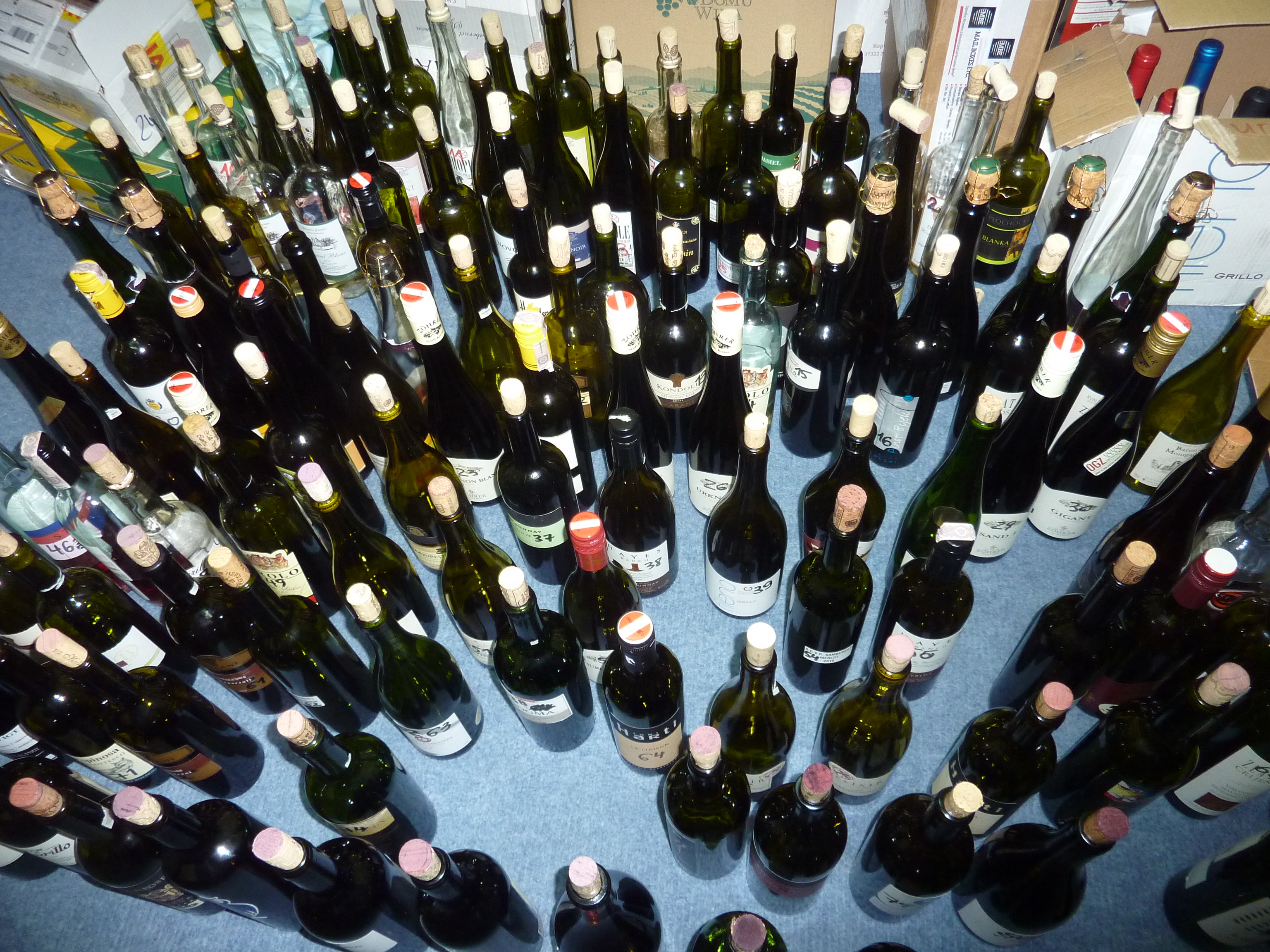Przedstawiamy tekst w języku angielskim poświęcony tematyce eksportu wina do Polski. Może okazać się on bardzo przydatny dla zagranicznych winiarni, dystrybutorów wina i firm które są zainteresowane rozpoczęciem działalności na naszym rynku. Materiał jest w pełni merytoryczny, jego autorem jest – mający wieloletnie doświadczenie w branży – Grzegorz Owca.
Lately we’ve been celebrating 10 years of Poland’s membership in UE. It would seem that, after all this time, all of the European traders working in the wine sector should have been able to easily access the information concerning requirements of selling wine to our country and that Polish regulations, in the process of adapting to the European law, should become more clear and intelligible. It would seem that our consular posts or even suitable departments of the Ministry of Finance should have been able to thoroughly inform foreign partners about the conditions they have to satisfy so they products could reach Polish customers. That may come out as a surprise, but it’s not the case.

Fairly often I receive mail from foreign companies or their Polish representatives concerning importing wine and selling it in Poland. Usually they think that our regulations should be corresponding to the ones in their country. Unfortunately not all of them are similar. In the following article I’d like to present the basic requirements of exporting wine to Poland.
1. Who can import and sell wine in Poland
The most important thing is realizing that in 99 cases of 100 the only subject that can import and sell wine in Poland is a company registered and operating in Poland. Unfortunately all the companies that are not registered as a Polish economic entity are able neither to acquire permission to sell alcohol nor to transport wine to Poland in any official procedure. Even if the company is a producer or a distributor in another European Union’s country it has to have a representative registered in Poland and working according to Polish regulations.
In order to import wine, first you have to register business in Poland. Fortunately, according to current Polish law, economic operator can register a partnership, which sole shareholder can be a foreign company or natural persons that are not Polish citizens.
I’ve been frequently asked for advice by Poles that want to cooperate with a foreign company without registering their own business. These people can enter a partnership with a company or foreign natural persons and represent them as a member of the board, authorised representative (prokurent; preferably with individual commercial power of attorney – prokura samoistna) or merely be employee in a partnerships (e.g. as a director). In all of the cases above, it is recommended to grant power of attorney to a person representing a foreign company in Poland. It is also possible for a foreign country citizen to register business in Poland and run it as a natural person.
You should consult a local law firm every time you register business in another country.
There is just one case of importing and selling wine, that doesn’t require a company being registered and operating in Poland. Unfortunately it applies only to selling (and delivering) wines directly to the final retail client that won’t sell the wine any further. In that case a foreign company has to officially designate a tax representative, that will represent it in front of the right customs office, buy excise bands on its behalf, submit notifications and tax return forms as well as pay its excise duty. The legal institution of a tax representative stems from the EU regulations and exists in all of the European Union countries.
2. Permissions required to sell alcohol
In order to sell any kind of alcohol (including wine) in Poland you have to acquire specific permissions. There are different kinds of permissions depending on both type of the alcohol (wine, beer, liquor) and alcohol content of the product. The type of permission also differs depending on the manner of sales (retail or wholesale). Different offices are responsible for issuing different types of permissions.
I’ll try to briefly introduce the matter of permission required to sell wines – or as the Polish law states: “permission to sell alcohol with 4,5% up to 18% alcohol content, excluding beer”
The most frequent objective of a foreign company working in Poland is wholesale. It enables company to sell wines to other companies with permissions to sell, such as restaurants, retail stores and other wholesale distributors. Permission for wholesale is issued by regional authorities (Marszałek Województwa), of the region that the company operates in.
Currently the cost of acquiring the permission for one year is 4000 PLN. Price for permission for consecutive years depends on sales figures, but it’s never lower than 4000 PLN.
It is sometimes worthwhile to consider acquiring a permission for retail as well. It makes possible selling not only to direct retail recipients but also to large corporations, that don’t intend to sell the wines, but give them to their employees or collaborating companies.
Permission for retail sale is issued by municipial authorities (e.g. mayor of the city).
The permission cost ranges from 500 to 800 PLN depending on resolution of the municipial council.
Most of the information about procedures and requirements concerning gaining permissions are available on BIP (Biuro Informacji Publicznej) website for appropriate region.
There’s one more extremely important fact regarding selling wine in Poland you should be aware of. There isn’t any legal possibility of selling wine online in Poland. All of the online shops selling alcohol in Poland are breaching the law according to most common legal interpretation.
You can read more about registering business and acquiring permissions to sale alcohol in my previous article (in Polish) here.
3. Registrations required before the first delivery
Having already had a business registered and operating in Poland, that has a permission to sell alcohol, we can focus on permissions required to import wine to Poland.
All of the procedures before the first delivery are conducted in the appropriate customs office, depending on location of the headquarters of the company. First, the company has to register as an excise taxpayer, which requires submitting to the office application AKC-R. The office will issue a confirmation of registration (AKC-PR) after seven days.
After that step you have to consider which procedure is foreign company going to use to sell wine to its representative in Poland. There are two possible procedures: duty-suspended and duty-paid excise.

Larger wineries and intermediaries from EU countries that operate in their own countries as tax warehouses will undoubtedly prefer to sell wine to Poland under suspension of excise duty. The procedure requires registering in Poland as a registered consignee.
But what to do to become one?
A. First you have to apply to the customs office with an application for issuing a “permission to aquire excise goods as a registered consignee”. In the application you have to state (among others) where the imported wine will be recieved, how much wine will be imported in a month, the kind of excise good (wine, sparkling wine, intermediate products etc.), the amount and the method of paying the guarantee. Obviously, the planned amount of imported wine influences the guarantee amount.
B. Then you have to arrange an official verification of the place allotted to recieve excise goods from the EU. To manage that you have to submit all the required documents with a precise description of a place where the imported wines are going to be stored (and possibly controlled by the customs office). There’s no clear description of the way of separating, securing and labeling such places in the Polish excise regulations and the interpretation of ambiguous regulations varies between different customs offices. The most liberal procedures allow to draw a line on the floor to separate the designated area, while the most restrictive require special rooms that can be closed with a customs seal. The more registered consignees in an area of the office, the more liberal custom office tends to be. That happens usually in the bigger cities. The more restrictive procedures are often required by inexperienced customs offices. I have actually heard the phrase that the customs office was “learning” on a functioning company.
C. The next step is submitting a general excise guarantee of the determined amount and form. The excise tax in Poland is 158 PLN for 1 hectolitre of wine. That means that if we’re planning to sell to Poland 10 hectolitres in a month, we have to pay 1580 PLN of the guarantee. The money stays in the customs office’s deposit for the entire time of our economic activity. Naturally, the sum due for the excise tax for importing wine at the moment, cannot be higher than the one currently in the deposit. The amount of guarantee can be raised by paying additional guarantee and changing the permission. Cash payment is just one way of paying the excise guarantee. If we plan to import more wine and the tax due is going to be much higher, we can guarantee it by submitting insurance policy, bank guarantee or a promissory note. Even while already running a business you can apply to the head of customs office for a flat-rate security that is 30% of a due excise tax.
D. Confirm proper records. You should submit to the office the record of excise bands and the record of deliveries (documents e-AD).
E. Register to EMCS system. Every exchange of information concerning moving of the excise goods under suspension of excise duty is in the EMCS system, which is the all-European system that helps countries’ fiscal services to control the import and export of goods (e.g. wine) between the sender (tax warehouse) and the receiver.
The other procedure of importing wine, which is the duty-paid excise, is more often used by the smaller producers. The procedure requires neither registering beforehand nor (usually) paying the guarantee of a general excise tax. The only actions you have to take before importing wine in this procedure is confirming the record of excise bands and the record of deliveries.
It does however require different actions every time there’s another delivery to Poland. Every time you have to submit information about planned delivery, pay the due tax guarantee and apply for the specific number of excise bands. After the delivery you have to submit within the prescribed period of time a simplified tax return (AKC-U) along with the application for returning to one’s account the excise duties of the specific excise tax. The procedure is undoubtedly simpler than the previous one.
4. Differences between Polish and other EU countries regulations
There’s one more extremely important difference between Polish and other EU countries regulations, which ensures the difference between actions required to import wine as well. In Poland, wine as an excise good has to be secured and labeled with a excise band. You have to buy a band in a customs office. The band can to be attached to the bottle in a specified way only outside of Polish boundaries. The only exception is when the wine is delivered to the tax warehouse, where the excise band can be put on the bottles. You have to keep in mind that every year within prescribed period of time you have to report preliminary demand for excise bands to the Ministry of Finance (which can be increased or decreased during the year).

Every time you buy the bands you have to pay “manufacturing cost” (currently between 18 and 21 PLN for 1000 pieces) and the excise bands should be stored and transmitted in a secure way and according to the written protocol. They also have to be registered in excise bands records, attached to the bottles and delivered to Poland during 12 month period since receiving from the customs service. Polish excise bands are not self-adhesive and you have to use special glue to stick them. If you wish to import wine in different containers than bottles (e.g. bag-in-box, keg), before importing and sticking the bands you have to inquire in the customs office about the “proper way of attaching the bands” and if the excise band on the bottle that is already in Polish shop or warehouse gets damaged you have to stick legalizing band (1,30 PLN for piece) – all according to the proper procedure.
The purpose of this article was to briefly and simply present the topic of bringing to Poland and selling here wines. I hope that the information presented will help the interested parties import exquisite wines to Poland.
Grzegorz Owca
Tłumaczenie/Translation: Aleksandra Owca
Polski odpowiednik tekstu jest tutaj.
 Grzegorz Owca is a specialist in international trade. Since nearly 20 years of experience in customs affairs, cooperates with Krakow`s Customs Office. He runs his own customs agency specializing among others in the use of excise products. He is a big wine enthusiast.
Grzegorz Owca is a specialist in international trade. Since nearly 20 years of experience in customs affairs, cooperates with Krakow`s Customs Office. He runs his own customs agency specializing among others in the use of excise products. He is a big wine enthusiast.
Write to the Author: owca@segre.pl



